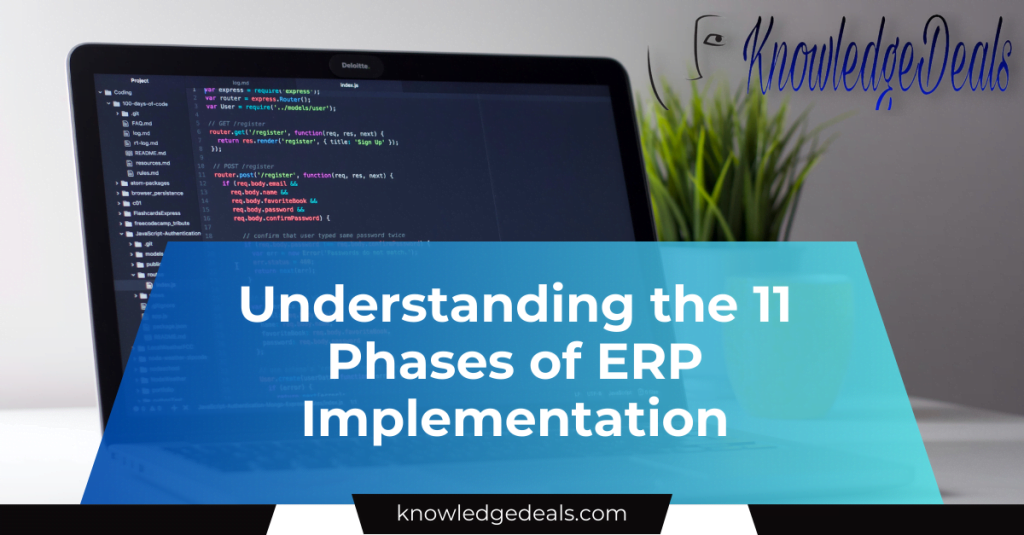[ad_1]
In this article, we will discuss the 11 phases of ERP implementation, allowing you to understand the process step by step. Each phase is crucial to the success of the implementation, and by comprehending each one, you can better navigate the complexities of ERP implementation.
What is ERP Implementation?
ERP implementation refers to the process of installing, configuring, and adopting an enterprise resource planning (ERP) system within an organization. This is a complex and multifaceted project that involves multiple stakeholders and can have a significant impact on various aspects of the business.
Successful ERP implementation can streamline business processes, improve collaboration, and boost overall efficiency. It can also help organizations make data-driven decisions and stay competitive in their industry.
What are the 11 Phases of ERP Implementation?
1. Planning and initiation
The planning phase involves setting the project goals, defining the scope of work, and assembling the project team. It is crucial to establish clear objectives and timelines during this phase to ensure a smooth implementation process.
2. Business process analysis
During this phase, the existing business processes are analyzed to identify areas for improvement and optimization. It also involves mapping out the new processes that will be supported by the ERP system.
3. System design
The system design phase involves creating the technical and functional specifications of the ERP system based on the requirements gathered from the business process analysis. This phase sets the foundation for the actual development and configuration of the system.
4. Development and configuration
This phase involves customizing the ERP system to meet the specific needs of the organization. It may include setting up modules, designing interfaces, and integrating with other systems.
5. Testing
Before the ERP system is deployed, extensive testing is essential to ensure that it functions as intended. This includes unit testing, integration testing, and user acceptance testing to validate the system’s performance and reliability.
Conclusion
ERP implementation is a complex and challenging process that requires meticulous planning and execution. By understanding the 11 phases of ERP implementation, organizations can navigate the journey more effectively and increase the likelihood of successful adoption. Each phase plays a critical role in the overall success of the implementation, and careful attention to detail is essential at every step.
By following the best practices and leveraging the expertise of ERP implementation professionals, organizations can optimize their operations and gain a competitive advantage in the market. Ultimately, ERP implementation is an investment that can yield substantial long-term benefits for businesses that approach it with diligence and strategic foresight.
FAQs
1. What are the key benefits of ERP implementation?
ERP implementation can streamline business processes, improve collaboration, and boost overall efficiency. It can also help organizations make data-driven decisions and stay competitive in their industry.
2. How long does ERP implementation typically take?
The timeline for ERP implementation can vary depending on the size and complexity of the organization, as well as the scope of the project. It can range from several months to a year or more.
3. What are the common challenges in ERP implementation?
Common challenges in ERP implementation include resistance to change, data migration issues, lack of user training, and poor adoption of the new system. It is essential to address these challenges proactively to ensure a successful implementation.
4. How can organizations ensure the success of ERP implementation?
Organizations can ensure the success of ERP implementation by engaging stakeholders, providing adequate training, conducting thorough testing, and aligning the implementation with business objectives. Ongoing support and continuous improvement are also crucial for long-term success.
5. What should organizations consider when selecting an ERP system?
When selecting an ERP system, organizations should consider their specific business needs, scalability, integration capabilities, vendor reputation, and ongoing support. It is crucial to choose a system that aligns with the organization’s long-term strategic goals.
[ad_2]





